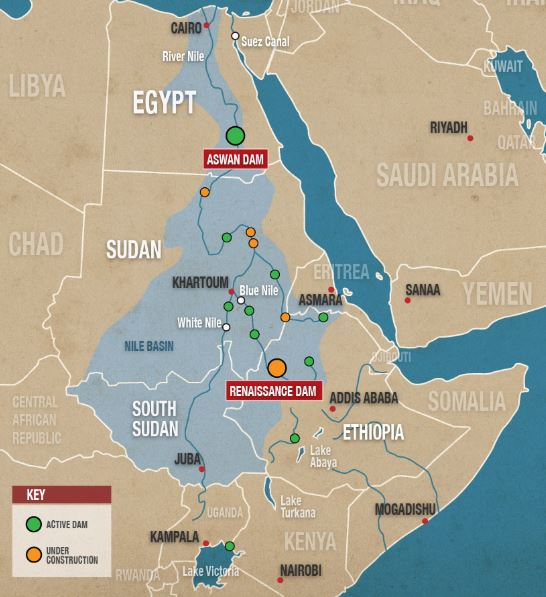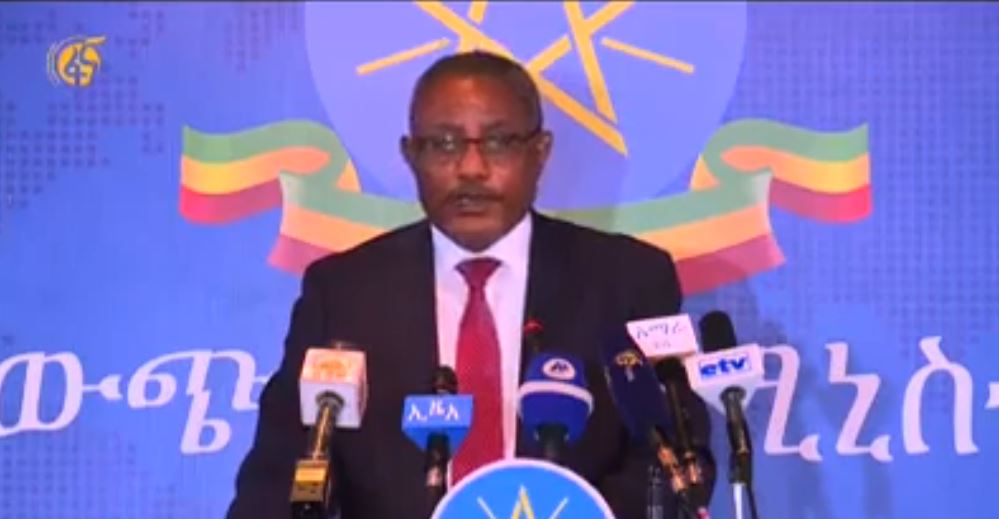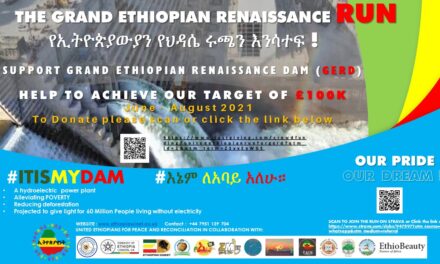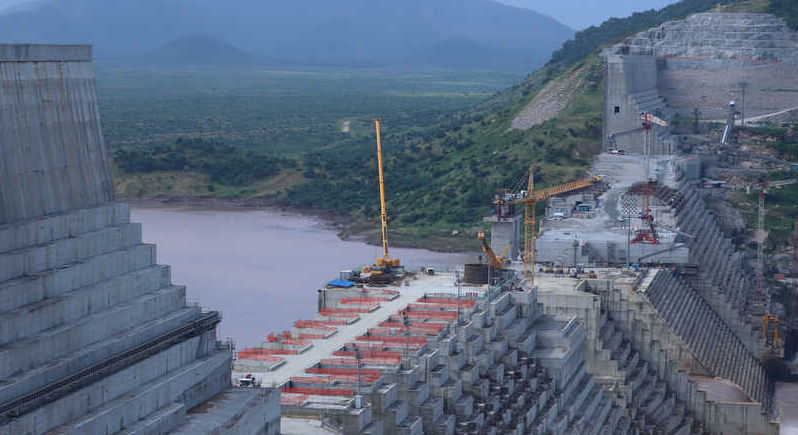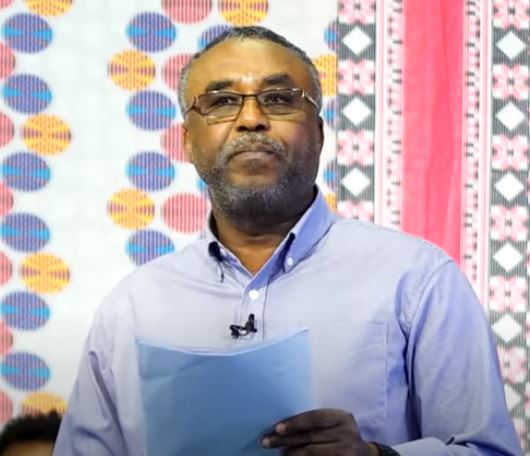BY LULSEGGED ABEBE (Ph. D.)
Conflict is dynamic. It mutates over time, taking on different shapes as issues continue to change, developing many layers. That is why negotiation should be designed as a process rather than as an event. For this reason, the tripartite negotiation between Egypt, Ethiopia and Sudan took ten years without any significant deal being made.
It becomes especially more complicated and difficult when the negotiating parties are not willing (prepared) to compromise, but continue shifting their signposts, sticking to their own interests in order to come out as a winner. Even worse, the processes become more challenging when history, politics and power are used as bargaining tools. The three countries have their own perspectives on these relationships between themselves and their influence in the region.
The trilateral negotiation is rooted in a “historical rights and current usage” narrative which is based on a treaty and an agreement which is not relevant to Ethiopia who was not a signatory to any deal. Even worse, parties to the negotiation use a blaming strategy rather than the realisation and recognition of the needs of other parties, being prepared to compromise and come to the understanding that water negotiation is not a zero-sum game; such processes in most cases will reach a dead end, a breakdown, and a stalemate.
It is a normal practice in any negotiation for parties to use strategies to help them win and get a lion’s share of the cake and become a standalone winner. However, some tactics, such as negative diplomacy, which Egypt has been using against Ethiopia, usually lead to a deadlock. These include misinforming and misleading the mediators and observers, underestimating the geopolitical context, undermining the change in power dynamics and prescribing what Ethiopia’s policy and strategy should be on the construction of the GERD, management of the dam and utilisation of Abay (Nile) water. This even includes meddling in the internal security, infringing national and regional security. For example, recently when the negotiation was at a deadlock, Egypt proposed supplying electricity to Ethiopia and neighbouring countries at a cheaper rate and paying compensation if Ethiopia stopped the construction of the GERD. Is this a legitimate offer or “shedding a crocodile tear”, a strategy used to distract the negotiation? The GERD, besides providing electricity to the people of Ethiopia, is a national icon, an important way to achieve Ethiopia’s SDGs, a source of green energy with a significant positive impact on the environment. The Ethiopian government cannot agree to such offers from Egypt, as GERD is the “people’s project”. Ethiopians in the country and the diaspora raised money through voluntary contributions for the construction and are counting down the days to its completion.
I have not come across a case in negotiation of river basin countries where downstream countries claim to have a legitimate right to grant permission to any project implemented in an upstream country in its own territory, where more than 80 percent of the water is generated. For example, Laos constructed the Xayaburi dam on the lower Mekong River; China constructed four giant dams on the upper Mekong river, and in both cases the downstream countries were not consulted. However, Ethiopia despite such practices, in good faith and to foster collaboration, brought the two downstream countries on board, sharing information about the GERD, including the technical documents.
The GERD is a mega project designed to produce 6.45 gigawatt (GW) of electricity. It is proof that Africans have the vision, the talent, expertise, and resources to execute such a project – it is an “African dam”. Ten years of trilateral negotiations have not been fruitful, apart from the signing of the 2015 Declaration of Principle (DoP). The DoP is the only document that challenged the “historical rights” narrative and replaced it with the “Principle of Equitable and Reasonable Utilisation” and a clause on the “Principle of Peaceful Settlement of Disputes” (Article X). Contrary to Article X of the DoP, Egypt requested the USA government to mediate, and subsequently appealed to the UNSC. Egypt’s decision to seek support from any government or intergovernmental institution is a personal and political choice. However, on the continent, we have more than 50 governments and the AU.
Finally, the mediation is back where it belongs, in an African institution, the AU. It is symbolic. African Heads of States, governments, and experts, in collaboration with international observers, have taken over the ownership. Even though Egypt wanted it to stay outside the continent, its position seems to be an old school perspective, seeking intervention from outside rather than from the inside. All this in spite of the fact that Egypt is a founding member of the AU, an immediate past Chair, a signatory to many treaties, and to a declaration that encourages integration and underscores African values and principles such as “African solutions to African problems”.
There has been substantial progress since the current Chair of the AU, the President of South Africa, Cyril Ramaphosa, took on the role of mediation. After the first virtual meeting of the Bureau of the African Union Assembly, the three countries have agreed to continue the negotiations. I am confident that they will reach a deal – a win-win – which will also be beneficial to the remaining eight riparian countries.
When the negotiation came back to Africa, Mother Nature was “happy” and intervened with an abundant supply of rain. Ethiopia impounded the 4.9 million cubic meters of water, which did not harm the two downstream countries; rather it contributed in reducing flooding. The first filling took place, despite Egypt’s legally binding agreement narrative during the mediation. From my perspective, the three downstream countries cannot sign a legally binding document unless they are trying to repeat the mistakes of Egypt and Britain (1929) and Egypt and Sudan (1959). An agreement on the Nile will only be legal when all of the 11 basin countries participate in the discussion and sign it. If Mother Nature is on our side, and I am confident that she will be, the second filling will also go smoothly. Even if that is not the case, the dams in Egypt and Sudan have impounded water to their maximum capacity, thus the GERD can be filled without significant harm.
If Egypt is serious about the negotiation, interested to collaborate, and is concerned about the development and wellbeing of the people of Nile basin countries, it has to change the narrative and accept a paradigm shift on the utilisation of the Nile water. It is not only Egypt, but all basin countries that need the water; thus, the adoption of “ubuntu” philosophy is vital. In particular, collaboration with Ethiopia is extremely critical since it will supply more than 86 percent of the water to the two downstream countries. The collaboration should not be limited to the following but should at least include:
- Mitigating climate change, as the amount of water from Abay (Nile), is dependent on the annual rainfall of Ethiopia;
- The Ethiopian government’s National Green Legacy Campaign, which is aiming to plant trees as this will have a positive impact in stabilising the weather;
- Saving and conserving the source of Abay, Lake Tana, the second largest lake in Africa, and UNESCO’s World Network of Biosphere Reserve which is under the threat of water hyacinth. The spread of water hyacinth on the lake will have an adverse effect on the dams in Egypt and Sudan;
- Sharing good practices and experience with basin countries on developing water-based developments.
Collaboration is the only way forward for the trilateral deadlocked negotiation; other options will not work. The collaboration should not be limited to the three downstream countries, but should be inclusive of all basin countries. Lessons learned from other basin countries in Africa and globally stress that transboundary water management systems among basin countries will enhance climate change adaptation, economic growth, food security, and regional integration, among other things.
Thus, for an effective collaboration, Egypt and Sudan should sign the Cooperative Framework Agreement (CFA) and join basin countries. The agreement is a breakthrough as it legitimizes the equitable share of Nile waters among basin countries. The “historical rights and current usage” arguments are null and void in the 21st century and should be replaced with the principles of Integrated Water Resources Management (IWRM) and the Convention on the Law of the Non-Navigational Uses of International Watercourses.
Once the CFA becomes a treaty, it will lead to the establishment of the Nile River Basin Commission (NRBC), which will create a platform, facilitate dialogue among member states, develop and implement guidelines for water management and the development of the basin.
Nobody has ultimate control over the amount of water Abay (the Blue Nile) and its tributaries will produce, it is dependent on Mother Nature. The only way forward is collaboration – working together to mitigate climate change. In this way, basin countries will come out as winners.
Editor’s Note: Dr. Lulsegged Abebe is an independent researcher and consultant. A peace and security expert with over 30 years of experience working in and on Africa with governments, CSOs, AU, UN, and EU on development, humanitarian assistance, reconciliation, and good governance. He may be contacted at: lulseggedabebe@gmail.com

